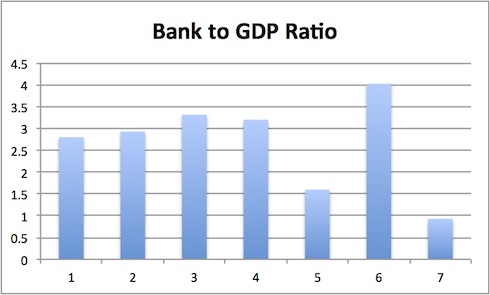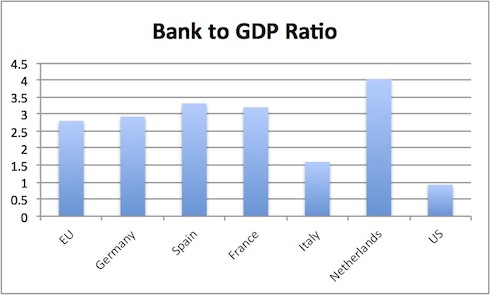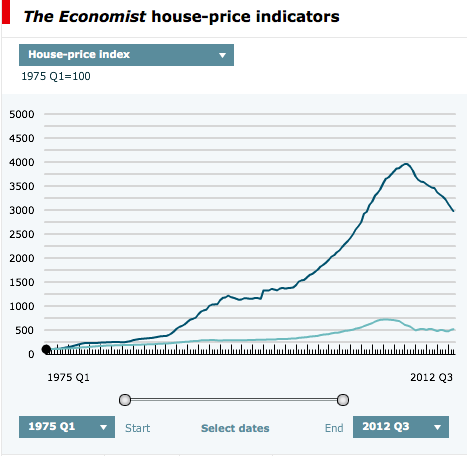The following is an excerpt from the latest issue of Private Wealth Advisory. In it, we outline in stark detail the single biggest threat to investors’ wealth today. Over 99% of investors fail to grasp these issues. But the consequences for those who miss this, will be catastrophic, possibly a 30%+ loss of portfolio.
Not subscribers. We made money during 2008 and throughout the Euro Crisis. And this next implosion will make us money to. To join us… Click Here Now!
The Fed’s let the inflation genie out of the box. It’s not going to show up in the CPI because US Government changes the CPI regularly to underplay the threat of inflation. However, if you look at what’s happening in the real economy with corporations, all of the warning signs area already there.
Chipotle Mexican Grill Inc. higher food costs to dampen fourth-quarter earnings, despite continued strength in its underlying sales trends.
The Denver burrito chain, which has about 1,350 locations in the U.S., has been looking for ways to boost its customer traffic growth, which began tapering off last spring.
“While food costs driven by underlying inflation increased faster than expected in the fourth quarter, we’re optimistic that food inflation will level off in 2013,” said co-Chief Executive Monty Moran.
http://online.wsj.com/article/SB10001424127887323468604578246201531551498.html
Xstrata plc, the Swiss mining company, which is subject of a $US33 billion ($A32.4 billion) takeover by Glencore International, said 2012 profit plunged 37 per cent on weaker commodity prices and higher costs.
Net income, excluding exceptional items, such as impairment charges, fell to $US3.65 billion from $US5.79 billion a year earlier, the company said. Sales at the world’s largest exporter of power-station coal slid 7 per cent to $US31.6 billion.
”The combined impact of falling commodity prices, ongoing inflationary pressure on operating costs and continued strong producer currencies relative to the US dollar put pressure on our margins,” chief executive officer Mick Davis said in the statement
LOWER PROFIT: Fourth-quarter net income at Southwest Airlines Co. fell by nearly half, to $78 million. Adjusted profit still beat analysts’ expectations, however.
HIGHER COSTS: Earnings were pulled down by increases in the cost of labor, maintenance and fuel. Expenses rose faster than revenue.
http://bigstory.ap.org/article/news-summary-costs-cut-southwests-4q-profit
The key point here is that inflation is already present in the financial system no matter what the Fed admits. This situation is only going to worsen. Indeed, you consider that costs are rising at the precise time that incomes are falling, you have a recipe for serious economic contraction similar to that of 2008:
U.S. incomes fell the most in two decades in January as higher tax rates kicked in, though American consumers opted to cut back on savings.
Personal incomes dropped 3.6% in January, the Commerce Department said Friday. Economists surveyed by Dow Jones Newswires expected a 2.5% decline.
The decline more than reversed big gains in December, when companies accelerated payouts of dividends and bonuses ahead of January tax increases. Many economists expect incomes to resume their slow growth after a bumpy couple of months.
Generally, if Americans have less money in their pockets they spend less on goods and services. But personal-consumption expenditures, which measure purchases ranging from cars and clothes to health care and travel, rose 0.2% in January, in line with economists’ expectations. Consumers cut back on big-ticket items but spent more on services.
http://online.wsj.com/article/SB10001424127887323978104578333961864183212.html?mod=googlenews_wsj
Indeed, Bernanke’s “wealth” effect for the markets has been totally negated by the fact that households are selling their retirement to make ends meet:
One in four Americans is raiding their meager retirement savings to pay their monthly bills, according to a new study.
When Amy Shankland’s husband, John, was laid off from his job, they tapped into their IRAs to get by. With credit card debt, big medical expenses, two young sons, the Shanklands had few options.
“We didn’t know what to do. It was either bankruptcy or cash in our IRAs,” Amy Shankland told NBC News.
The Shanklands are not alone. Americans are borrowing against their 401(k) to pay for non-retirement needs such as mortgages, credit card debt or college tuition, according to a new study from financial advisory firm HelloWallet. That amounts for more than $70 billion in annual withdrawals.
http://www.nbcnews.com/business/more-americans-raiding-401-k-s-pay-bills-1B7989986
All of this indicates that we are heaving into another massive economic contraction. Against this backdrop, stocks have formed a bubble. We all know how this will end. But most investors are ignoring all of the warning signs and buying stocks like there’s no tomorrow
This is precisely the sort of action we saw going into the Tech top and the 2007 top. The Fed has managed to create a bubble in stocks and housing again… right as the US economy collapses (just like in 2000 and 2007). We all know what came next.
This is precisely the sort of “unquantifiable” investment analysis we specialize in with our Private Wealth Advisory newsletter.
With most of the markets dominated by computer programs and Wall Street sharks, the only way to make serious money is by focusing on the opportunities and risks that no computer or group-think Wall Streeter can come up with. If you can do this, you can still making a killing in the markets.
We’re speaking from experience here.
By focusing on investment ideas and portfolio risks that are “unquantifiable” we’ve shown a success rate of OVER 80% on our investments.
Put another way, we’ve made money on more than eight out of ten investments. This includes a 74 trade-winning streak (from July 2011-July 2012 we didn’t close a single losing trade).
And this is not some flash in the pan either.. Private Wealth Advisory has a history of beating the market and locking in serious gains when others are losing their shirts (we saw a 7% gain in 2008 when the markets fell over 30%)
Indeed, I’m so confident in this newsletter that it comes with a 30-day refund period. If you’re not totally satisfied with Private Wealth Advisory in the first month, simply drop us a line and we’ll refund every cent of your subscription.
You’ll have full access to the Private Wealth Advisory archives in that time. You’ll also receive two new hot off the press issues and very likely several trade signals (it’s getting close to time to close out our 7th and 8th winners for the year).
To find out more about Private Wealth Advisory and how it can help you beat Wall Street and the market…
Phoenix Capital Research







